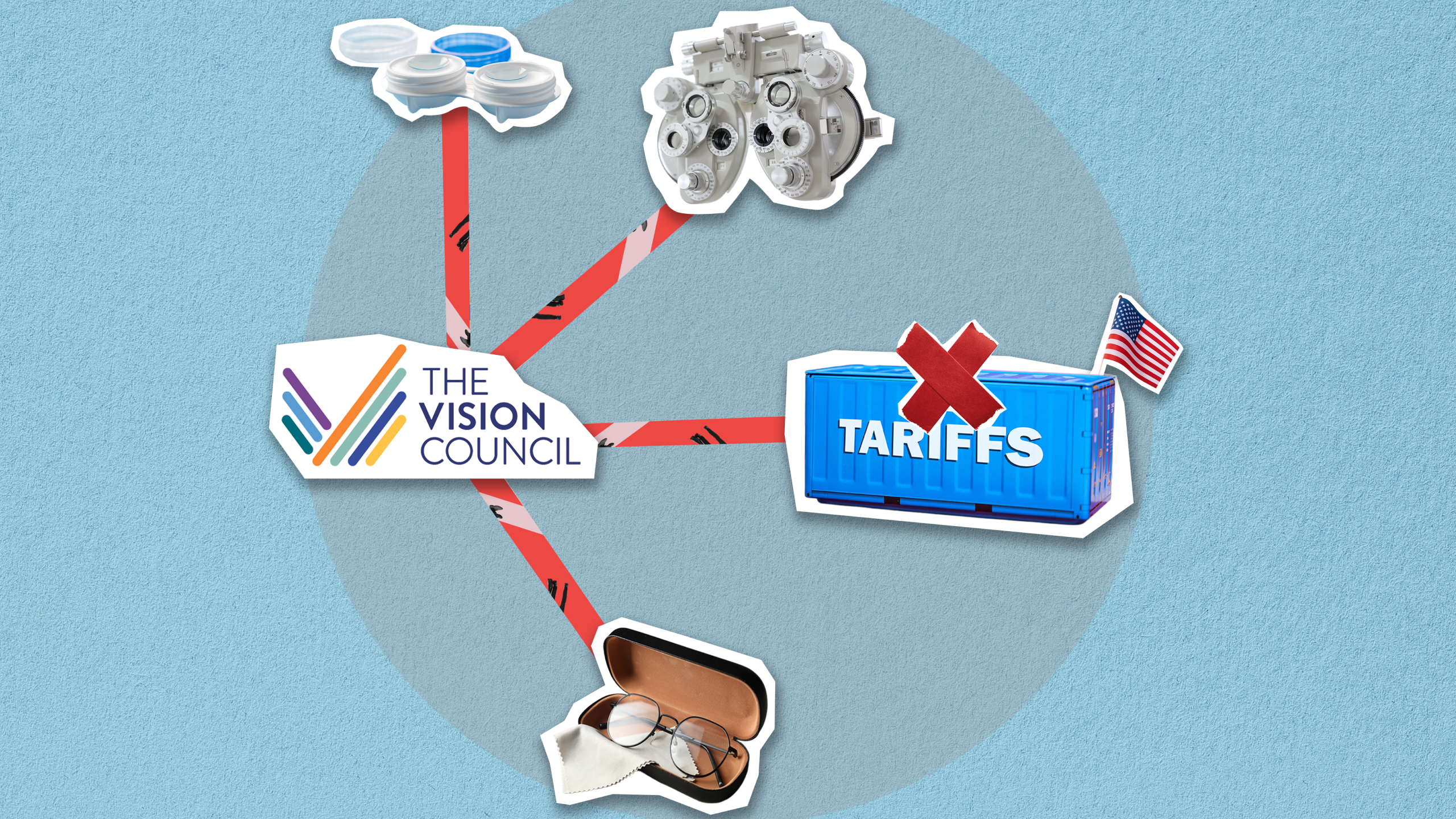When U.S. tariffs threaten to blur vision, The Vision Council sharpens its focus on fair trade.
The Vision Council is seeing red over potential new U.S. tariffs that could blur the outlook for optical products and manufacturing equipment. The organization has formally opposed the measures, warning that they could drive up costs for providers and, ultimately, patients across the country.
In two official submissions of the council to the U.S. Department of Commerce, the national trade association addressed ongoing concerns about the Section 232 national security investigations into Personal Protective Equipment (PPE), medical consumables and medical equipment (Docket No. BIS-2025-0258), as well as robotics and industrial machinery (Docket No. BIS-2025-0257). The product definitions in these investigations could encompass items that are vital to the optical industry, including eyeglasses, lenses, low vision aids and optical equipment used in their production.
READ MORE: Gen Z Is Set to Drive Contact Lens Adoption. Here’s What the Industry Needs to Watch
Protecting affordable public eye health
The Vision Council’s primary argument centered on public health: additional tariffs would drive up the prices for essential eyewear and equipment, ultimately reducing the access to affordable eye care. The organization emphasized that corrective eyewear is among the most widely used medical devices in the country, with around 61% of Americans wearing prescription glasses and more than 81 million pairs of contact lenses dispensed annually.
“Affordable access to corrective eyewear is a public health necessity,” said Ashley Mills, CEO of The Vision Council, in a news release. “Additional duties on optical devices or equipment will make it harder for Americans to access the care they need.”
The comments also pointed out that many optical companies are already burdened with the existing trade measures like Section 301 tariffs and duties under the International Emergency Economic Powers Act. These have led to higher costs, thinner profit margins and delayed the industry’s growth and innovation.
Ensuring fair trade and exemptions
The Vision Council further stressed that the optical sector’s global supply chain—spanning trusted partners in Italy, Germany, Japan and Mexico—does not pose a national security threat. Instead, these partnerships support U.S. consumer health and eye care.
To prevent further disruption, the group urged the Department of Commerce to create a transparent process for exempting optical products and equipment from any new Section 232 actions. The Vision Council also submitted detailed lists of Harmonized Tariff Schedule (HTS) codes that identify specific devices, diagnostic tools and machinery exclusions.
READ MORE: Eyeglasses in the Age of Virtual Reality
Continuing advocacy efforts
Beyond the formal submissions, The Vision Council’s Government and Regulatory Affairs team continues to work with lawmakers and federal agencies in Washington, D.C, to push for tariff relief and fair trade conditions.
Senior Manager of Government Relations Omar Elkhatib stated, “Our mission is to ensure policymakers understand that optical products are health tools, not security threats, tariff relief is essential to maintaining affordable, high-quality vision care for millions of Americans.”
READ MORE: Eye-Opening Contact Tidbits: 10 fun facts about lenses to amaze and surprise your patients
The takeaway
By opposing expanded tariffs, The Vision Council reinforces its role as an advocate for both the optical industry and patients who rely on accessible, affordable vision care. The organization’s stance highlights an ongoing conflict between trade policy and public health–underscoring the importance of balancing national security concerns with everyday healthcare needs.
Editor’s Note: This content is intended exclusively for healthcare professionals. It is not intended for the general public. Products or therapies discussed may not be registered or approved in all jurisdictions, including Singapore.
